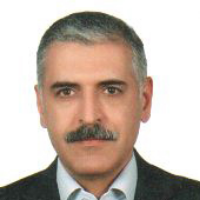Explaining the determining components of self-regulatory in the auditing profession: the algorithm of deriving fuzzy adaptive axes of TODIM
Self-Regulatory is considered as a regulatory procedure in the auditing profession, the method of applying efficient control over the procedures of performing the tasks of auditors with the aim of meeting the expectations of stakeholders. The purpose of this research is presenting a Self-Regulatory Function model and evaluating its axes in the auditing profession by the algorithm of deriving fuzzy adaptive axes of todim.This study is mixed in terms of data collection methodology. Therefore, first, through the analysis of foundation data theory and the use of Glazer's approach, an effort was made to determine the dimensions of Self-Regulatory development in the auditing profession, and then its reliability was investigated with the aim of determining the limit of theoretical consensus through fuzzy delphi analysis. In the quantitative part of the research, todim's algorithm for deriving fuzzy adaptive axes has been used, because the purpose of this part is to explain the identified dimensions to determine the most important axis for the development of self-discipline function in the audit profession. In this research, in the qualitative part, 13 experts in the field of accounting at the university level and in the quantitative part, 50 auditors with more than 5 years of experience participated as the statistical population.The results of the research in the qualitative part during 13 interviews out of 39 topics; It has 8 components and 3 categories in the form of an eight-dimensional model. The results in the quantitative part of the research, based on the TODIM fuzzy inference matrix and the determination of the final weight of each of the research criteria, indicate the selection of auditors' self-efficacy as the most important axis for the development of self-discipline functions in the auditing profession. According to the obtained results, it should be stated that professional self-efficacy in auditors stimulates the development of self-discipline in the auditing profession due to the existence of individual motivations and focusing on skill and specialized capabilities because the auditor consciously uses his experiences to develop professional knowledge in the field of performing his duties for the benefit of the beneficiaries.
-
Presenting The Proposed Model of Financing Mnicipalities Based on Assets (Case Study: Tehran Municipality)
Mehrzad Minouei *, Abolfazl Gholami Badi, Reza Tehrani,
Accounting & Auditing Studies, Spring 2025 -
Typology of Self-Regulation Frameworks for the Development of Functional Measures in the Auditing Profession
Azade Rajabloo, Seyyed Hossein Hosseini *,
Journal of Accounting Knowledge, Spring 2025 -
Investigating the impact of Adjustment and Anchoring Bias with the approach of information order and moral intensity on audit judgment with time budget pressure as a Moderating Variable
Fatemeh Asadi, Seyyed Hossein Hosseini *,
Journal Of Empirical Reasearch Of Financial Accounting,



